Conflict with the city and province of Groningen
- Conflict with the city and province of Groningen (1704 )
- Ramshackle library (9 April 1710)
- Petrus Camper (1722 - 1789)
- 'Doctorsbul' Joannes van Rickenga (1724)
- Thanks to the House of Orange (29 November 1749)
- Bad food in the Mensa (7 March 1772 )
- Offerhaus: a historic treat (1775)
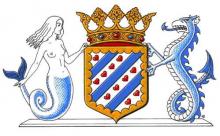
1704: Conflict with the city and province of Groningen
In the sixteenth century, education and politics were tightly interwoven. At this point the university was a victim of the political bickerings between Stad (Groningen) and Ommelanden (the province of Groningen). These two parties argued about the staple duty. This was a tax on products, which stated that all products from the surrounding areas (the Ommelanden) needed to be traded in Groningen (Stad). This happend to the great dissatisfaction of the Ommelanden and, in their turn, they repeateldy hindered governmental issues. One of the issues in which the Ommelanden refused to cooperate was the appointment of professors at the university. As a result, no professors could be appointed and student numbers dropped. Finally, in 1717, there will be an end to the conflicts. In that period, the University starts growing and after all there is a fresh prospective to the future. A future of infinity as we say now!
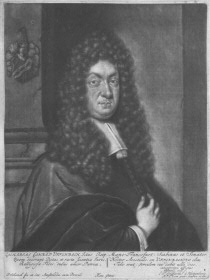
9 April 1710: Ramshackle library
Zacharias Conrad Uffenbach visited the city of Groningen in 1710 on his journey through Lower-Saxony, The Dutch Republic and England. On April 9, he bounces along in the University Libary, where he probably expected more: "Nachmittags giengen wir auf die Bibliothecam Academiae. Selbige ist hinten an der Universitäts-Kirche, in zwey sehr langen, aber schmalen Gängen, welche vermuthlich die oberste Gänge von dem alten Closter gewesen. Es siehet sehr obscur und wüste aus, und sind die hesslichen Bücher-Bretter, so auf der einen Seiten hinunter stehen, lang nicht voll, und der meiste Theil der Bücher ist, wo nicht in der That alt und schlecht, dennoch so gebunden." He wrote down his very personal experiences in his book 'Merkwürdige Reisen durch Niedersachsen Holland und England'.
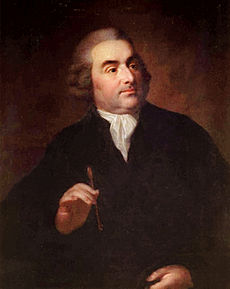
1722-1789: Petrus Camper
Petrus Camper was a true 'Uomo Universalis' and a scientific miracle. During the Enlightenment, he played an important role in the medical sciences. He published a great deal, through which he contributed to the popularisation of science in the 18th century. He also produced anatomical books with illustrations of is own. But he was not only famous in The Netherlands. Also the French Academy and the English Royal Society were pleased with his presence. Unifocus provided an account of this remarkable man and his work.
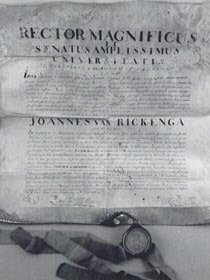
1724: 'Doctorsbul' Joannes van Rickenga
In the University museum you can admire this doctoral degree certificate ('doctorsbul') of Joannes van Rickenga. This bul orginates in the first half of the 18th century. Likewise to today, the document has to show that the person in question stately has been promoted at the university. In the time of Joannes van Rickenga, this happened with a seal as you can see. Remarkable are the signs of the engaged persons. This still happens today.
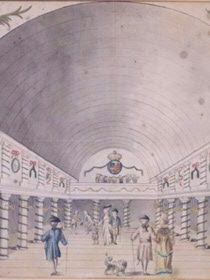
29 October 1749: Thanks to the House of Orange
The university board gave regent Willem IV of Orange extensive competence in the University of Groningen, by making him 'rector magnificentissimus' and 'primus curator'. In this way, they hoped the House of Orange would saveguard the univerity. By appointing new professors the number of students increased. Willem IV was welcomed at the Academy building, after a grand procession through the city, which started at the Grote Markt. Protection of the House of Orange provided the university with a much needed boost, such that it made the French decide to keep the univerity open, instead of the University of Franeker, in 1811.
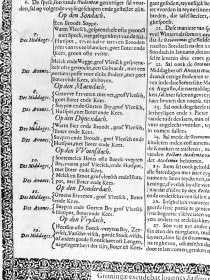
7 March 1772: Bad food in the Mensa
This picture shows an original menu of the Mensa university restaurant anno 1772. The map is in Dutch, but it says: 'Warm beer and bread with cheese in the afternoon. In the evening, meat, butter and pancakes for each student.' The menu looks delicious, even today! Nevertheless, the quality of food in this period was of the highest standards. This becomes apparent if we consider the statement of the senate in 1772. They stated that the hygiene in the Mensa was poor and students became ill. Until 1813, therefore, the university professors set up a schedule to perform daily hygiene checks of the Mensa. Everything to protect the youth of the academy!
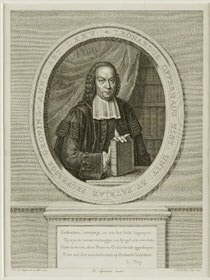
1775: Offerhaus: a historic treat
This is a picture of professor of History and Rhetoric Leonardus Offerhaus (1699-1779), who was Rector of the university three times. He was also librarian of the University Library. This print is an example of the academic prints of which both the University Museum and the University Library have a large collection.
| Last modified: | 13 July 2022 1.51 p.m. |
More news
-
16 April 2024
UG signs Barcelona Declaration on Open Research Information
In a significant stride toward advancing responsible research assessment and open science, the University of Groningen has officially signed the Barcelona Declaration on Open Research Information.
-
02 April 2024
Flying on wood dust
Every two weeks, UG Makers puts the spotlight on a researcher who has created something tangible, ranging from homemade measuring equipment for academic research to small or larger products that can change our daily lives. That is how UG...
-
18 March 2024
VentureLab North helps researchers to develop succesful startups
It has happened to many researchers. While working, you suddenly ask yourself: would this not be incredibly useful for people outside of my own research discipline? There are many ways to share the results of your research. For example, think of a...

